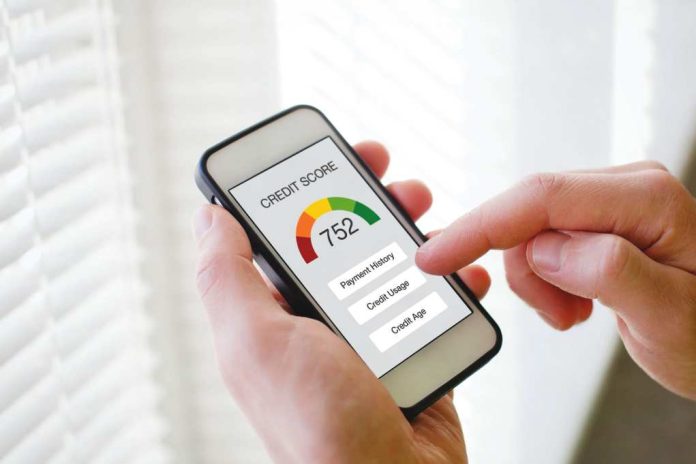
Many people are excited to become an adult because it means more freedom. However, most people aren’t ready when it comes to their finances including things like their credit. In fact, there are 26 million American adults that have no form of credit history which means they are “credit invisible”. Besides people that are credit invisible, there are people that have a credit score that could use some work. In fact, 34% of Americans have credit scores that are lower than 669. That means there are countless people that could benefit from getting a good credit score. However, not everyone understands how they can do that!
What is a Credit Score?
In order to understand what it means to have a good credit score, you must first make sure you know the basics! Your credit score is generally a number between 300 and 850. Credit bureaus (also known as credit reporting agencies) calculate this score with information that is found on your credit report. Your credit report contains a variety of information about your credit file. This includes details about your credit card balances, payments made, and more. There are three major credit bureaus which are Experian, Transunion, and Equifax.
When calculating your credit score, credit reporting agencies will use scoring models in order to determine how items found on your credit report will affect your score. There are two main scoring models. There is the FICO scoring model and the VantageScore model. However, the FICO scoring model is more popular. That’s because it is used by 90% of top lenders! Your score is important because it is what lenders use to determine how you are as a borrower and the risk they face if they lend you credit. This is known as your creditworthiness!
What Factors Impact Your Credit Score?
Since the FICO scoring model is more popular, that is the reference we will use for the factors below! There are 5 main factors that can affect your credit score. These factors include:
- Payment History
- Credit Utilization Ratio
- Age of Credit History
- Types of Credit Accounts
- Hard Pulls
Payment History
At the top of the list of factors that affect your credit score is your payment history. This factor accounts for 35% of your score, but that shouldn’t come as a surprise! That’s because this information can easily show lenders how you repay your debts. Your payment history would include information like your late payments, collection accounts, on time payments, and more.
Credit Utilization Ratio
Your credit utilization ratio looks at your total credit limit compared to the amount of credit you are currently using. For example, let’s say you have an overall credit limit of $2,100. If you are currently using $714 then your credit utilization ratio would be 34%. This is the second most important factor on this list and it accounts for 30% of your score.
Age of Credit History
Another important factor to be mindful of is the age of your credit history. This would include information like the age of your oldest accounts, the age of your newest accounts, etc. While this factor only impacts 15% of your credit score, it is still something that you should be aware of!
Types of Credit Accounts
When people think of credit, they may not realize that there are different types of credit accounts. There are two main accounts which are installment loans and revolving credit. An example of revolving credit would be a credit card. On the other hand, an example of an installment loan would be a mortgage or an auto loan. This factor accounts for 10% of your score.
Hard Pulls
Finally, last but not least on this list are hard pulls. Hard pulls, also known as hard inquiries account for 10% of your score. When it comes to credit, there are two types of inquiries. There are soft inquiries and hard inquiries. Soft inquiries do not impact your score at all, while hard inquiries do. Hard inquiries are what lenders need in order to get an in-depth look at your credit file. This is why they require written permission from the consumer to provide this access!
What are the Credit Score Ranges?
Scoring models have their own set of credit score ranges. That means the credit scores for the FICO scoring model have different rankings compared to the credit scores for the VantageScore model. For the FICO model the credit score ranges are:
- Poor (credit scores between 300 and 579)
- Fair (credit scores between 580 and 669)
- Good (credit scores between 670 and 739)
- Very Good (credit scores between 740 and 799)
- Exceptional (credit scores between 800 and 850)
However, for the VantageScore model the credit score ranges are:
- Very Poor (credit scores that are between 300 and 499)
- Poor (credit scores that are between 500 and 600)
- Fair (credit scores that are between 601 and 660)
- Good (credit scores that are between 661 and 780)
- Excellent (credit scores that are between 781 and 850)
Something to keep in mind is that there is more than one version of the FICO score model. In fact, there are at least 16 different versions of the FICO model.
How to Check Your Score?
An important part of your credit score is to know how to check your score. There are plenty of ways that you can see what your credit score is. You can:
- Check with Your Credit Card Issuers
- Use a Third Party App
- Get Help from a Credit Counselor
Check with Your Credit Card Issuers
Your credit card issuer is one of the best places that you can check your credit score. For example, if you have a Discover credit card, you can use their online customer portal to see what your FICO score is. Each credit card company is different so you will need to confirm with yours specifically.
Use a Third Party App
Another way that people check their credit score is by using a third party app. There are apps available that aim to help people handle parts of their finances like checking their credit score. Some apps that are available include Mint, Credit Karma, and more. These apps may even be able to provide more services than just credit monitoring! Not all apps are free, so make sure to review your options when comparing which app to get. Also some apps have free credit score websites that people can use instead of an app!
Get Help from a Credit Counselor
You can get help with your credit score by using a credit counselor. A credit counselor is a trained and certified professional that typically works at a credit counseling organization. Credit counseling organizations are usually non profit which means the services they provide may be free. Credit counselors specialize in areas of consumer finance like credit management. They can help you check your score!
What is Considered a Good Credit Score?
Now that you understand the basics of a credit score, it is time to make sure you know what it means to have a good credit score. It’s important to note that the ranges of what makes a good credit score varies based on the credit scoring model. However, as a rule of thumb, good credit scores are typically between 670 and 739.
How to Get a Good Credit Score?
If you want to get a good credit score you will need to better manage your credit. There are a few ways that you can do this! While everyone’s credit situation is different, there are some general rules around dealing with your credit score. You can:
- Handle Your Payments Responsibly
- Keep Your Credit Utilization Ratio Below 30%
- Keep in Mind the Age of Your Credit
- Don’t Submit Too Many Hard Inquiries at Once
- Review Your Credit Report
Handle Your Payments Responsibly
Think back to earlier in the article when we talked about different factors that can affect your credit. At the top of the list was your payment history. That is why it is so important to make sure your payments are paid in full and on time. Even if they are “on time” but are only for a partial payment, it is still considered late. If you are struggling to keep up with your payments you will want to talk to your lender. They may be more flexible than you realize when it comes to updating the terms of your repayment.
Keep Your Credit Utilization Ratio Below 30%
Another important part to consider is your credit utilization ratio. This is the second most important factor when it comes to your credit which is why you want to make sure it is healthy! As a general guideline, you should keep your credit utilization ratio below 30%. That means if you have a total credit limit of $2,400 then you will want to be using no more than $720 at any given time.
Keep in Mind the Age of Your Credit
It is important to be mindful of how old your credit accounts are. That’s because the age of your credit impacts your score. If you choose to close down an old account then your score could drop. You may want to consider keeping accounts open because of how they impact the age of your credit which can affect your score.
Don’t Submit Too Many Hard Inquiries at Once
Another important rule of thumb to keep in mind is not to submit too many hard inquiries at once. Hard inquiries can drop your score by up to 5 points. If you keep trying to get credit (which requires a lender to confirm the eligibility of your credit file through a hard inquiry) then you may see a drop in your score. Make sure to space them out and try to not submit too many during a specific timeframe.
Review Your Credit Report
Under the Fair Credit Reporting Act (FCRA), credit bureaus must report accurate information on a consumer’s credit report. However, not all information on your credit report may be accurate. You can find errors like incorrect account details, inaccurate personal information, etc. If you find one of these errors, you can submit a dispute with the credit bureaus. Due to the FCRA, credit bureaus must investigate to make sure the item is actually incorrect. If it is found to be invalid, then it will be removed from your credit report which would get rid of any negative impact it had on your score.
Why is a Good Credit Score Important to Have?
Having a good credit score can mean a world of difference when it comes to your finances. Not only by allowing you to qualify for financial opportunities, having a good credit score also means better terms. For example, the average credit card APR for someone with good credit is 18.98% compared to 22.9% for someone with fair credit. This difference can mean hundreds or even thousands of dollars of the course of a credit card, loan, etc.
There are plenty of benefits that come along with having a good credit score like:
- Saving Opportunities
- Better Terms
- Insurance Discounts
What are Negative Items that Can Bring Down Your Score?
Now that you know some of the ways that you can get a good credit score, you also want to know about some credit habits to avoid. Avoiding these credit habits can also help you get a good credit score! Some negative items that can affect your score include:
- Late payments
- Hard inquiries
- Foreclosures
- Short sales
- Collection accounts
- Chapter 7 bankruptcies
- Chapter 13 bankruptcies
- Unpaid taxes
Frequently Asked Questions
When learning about your credit, good credit, etc., it can be confusing. If you feel this way, you are not alone. Other people learning about their credit and good credit have had questions. Especially when it comes to understanding what it means to have a good credit score. You may have some of the same questions that others have had too!
How Can You Improve Your Credit Score?
There are plenty of ways that you can improve your credit score to get good credit. However, the best way to improve your credit score will depend on your situation. For example, if you are always on time with your payments but have a high credit utilization ratio then you would benefit from reducing your overall debt. If you want to know the best way to handle improving your credit for your situation then you should get in touch with someone like a credit counselor.
What Type of Information is on Your Credit Report?
You can find a variety of information about your credit accounts. Your credit account is listed as a tradeline on your credit report. Tradelines on your credit report will contain details about the account like payment history, current balance, etc.
When Do Negative Items Fall Off Your Credit Report?
The timeline for negative items can vary. Luckily, negative items will likely fall off your credit report after a certain number of years. This means that even if you did deal with some credit hardship, it may fall off your report sooner than you realize. According to the following negative items:
- Hard inquiries fall off after 2 years
- Late payments fall off after 7 years
- Foreclosures fall off after 7 years
- Short sales fall off after 7 years
- Collection accounts fall off after 7 years
- Chapter 13 bankruptcies fall off after 7 years
- Unpaid taxes either fall off after 7 years from the last paid date or stay on indefinitely
- Chapter 7 bankruptcies fall off after 10 years
What to Do If You don’t Have a Credit Score?
If you don’t have a credit score you will want to work on getting one. You can become an authorized user on someone else’s credit card account or you can open up your own credit card. Even if you don’t have a score, you can try to get a secured credit card which is easier to qualify for! However, there are a variety of things you can do, these are just 2 options.
What is an Excellent Credit Score?
Keep in mind that an excellent credit score will vary depending on the scoring model. However, as a general rule of thumb excellent credit scores are over 800.
Is Very Good Credit Different from Good Credit?
Yes! When looking at the FICO model these two categories have different ranges of credit scores. Good credit has a range of 670 to 739. On the other hand, very good credit has a range of 740 to 799.
For the VantageScore model, good credit is between 661 and 780. However, there is no “very good credit” ranking. After good credit on the VantageScore model it goes straight to excellent credit which is between 781 and 850.
What if You Don’t Have Good Credit?
If you don’t have good credit, you are still in luck. Luckily, your credit can change. That means it is possible to get good credit. In fact, it may be easier than you realize. That’s because good credit involves getting into better credit habits. If you need advice on how to get good credit then you should get in touch with a professional like a credit counselor.
Overall
Your credit score can be confusing but it doesn’t have to be! Your credit score is generally a number between 300 and 850. Credit bureaus (also known as credit reporting agencies) calculate this score with information that is found on your credit report. Your credit report contains a variety of information about your credit file. Your score is important because it is what lenders use to determine how you are as a borrower and the risk they face if they lend you credit. This is known as your creditworthiness. Having good credit is important because of this reason. It may be easier than you think to get a good credit score. However, if you need help you may benefit from getting in touch with a professional like a credit counselor.
Article References
https://www.creditstrong.com/credit-score-statistics/
https://www.badcredit.org/how-to/how-many-americans-have-bad-credit/
https://www.investopedia.com/fico-credit-scores-explained-5072985
https://www.equifax.com/personal/education/credit/score/what-is-a-good-credit-score/
https://www.equifax.com/personal/education/credit/score/what-is-a-good-credit-score/
https://www.consumerfinance.gov/ask-cfpb/how-do-i-get-and-keep-a-good-credit-score-en-318/
https://www.experian.com/blogs/ask-experian/how-many-points-does-an-inquiry-drop-your-credit-score/
https://wallethub.com/edu/cc/average-credit-card-interest-rate/50841
https://www.experian.com/blogs/ask-experian/why-would-you-want-a-good-credit-score/
https://www.bankrate.com/personal-finance/debt/when-does-old-debt-fall-off-credit-report/
















